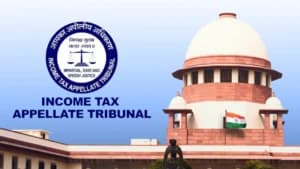In a significant development aimed at curbing the misuse of Section 498A of the Indian Penal Code (IPC), the Supreme Court has endorsed the guidelines laid down by the Allahabad High Court. The top court directed that these guidelines, which introduce a two-month “cooling-off” period and mandate the involvement of Family Welfare Committees (FWC), should be implemented across districts.
A bench of Chief Justice of India BR Gavai and Justice AG Masih ruled:
“The guidelines framed by the High Court of Allahabad in the impugned judgment dated 13.06.2022... with regard to 'Constitution of Family Welfare Committees' for safeguards regarding misuse of Section 498A, IPC shall remain in effect and be implemented by the appropriate authorities.”
Read also: “A Cow is a Cow” – Supreme Court Rejects Plea for Use of Only Indigenous Cow Milk at Tirumala Temple
The Allahabad HC had issued these directives while hearing Criminal Revision No. 1126 of 2022, drawing inspiration from the Supreme Court’s 2018 decision in Social Action Forum for Manav Adhikar v. Union of India, which addressed the widespread misuse of cruelty laws in matrimonial disputes.
Key Highlights of the Guidelines Endorsed:
“No arrest shall be made for two months after an FIR is lodged under Section 498A IPC. Instead, the case will be referred to the Family Welfare Committee.”
- Cooling-Off Period: A mandatory 2-month period post-FIR where no arrest or coercive action is allowed.
- Referral to FWC: All such cases will be directed to a Family Welfare Committee for mediation.
- Eligible Cases: Only cases under 498A IPC without grievous charges like Section 307 IPC (attempt to murder) will go to FWC.
- FWC Composition: At least 3 members including young mediators, social workers, retired judges, or educated spouses of senior officers.
Read also: Supreme Court Directs Isha Foundation and Nakkheeran to Approach Delhi High Court
- No Witness Role: Committee members will not act as witnesses in any proceeding.
- Mandatory Interaction: Both parties and up to 4 elderly members must attend FWC meetings for resolution.
- Committee Report: A detailed report must be submitted after 2 months to the magistrate or police for further action.
- Limited Police Role: Police may conduct peripheral investigation but cannot arrest during this period.
- Special Training: Legal Services Authority will train FWC members and specialized officers for handling such cases.
- Pro Bono Service: FWC members will work on a voluntary basis or nominal honorarium.
- Case Disposal: If settlement is reached, District Judges can dispose of the case accordingly.
The Supreme Court was deciding a case where the wife had filed six separate criminal complaints against her husband and his family, leading to their prolonged imprisonment.
“What they have suffered cannot be resituated or compensated in any manner,” the Court noted, highlighting the misuse of criminal law and justifying its intervention.
Read also: Supreme Court Dismisses PIL Against Political Parties Using Tricolour-Themed Flags With Symbols
The apex court also invoked its powers under Article 142 of the Constitution to quash the criminal proceedings and dissolve the marriage.
“The wife and her parents must issue a public apology for the false cases,” the Court ordered, citing the moral obligation arising from the unjust suffering of the husband and his father.
Case Title: Shivangi Bansal vs Sahib Bansal















